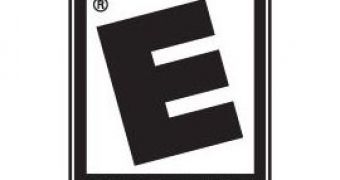The ESRB is responsible for rating games and for deciding whether a title will be available to a larger public or to a smaller one. For games to get a certain rating, they have to meet some content requirements. If one is too violent or dabbles in mature themes, the ESRB will restrict it to an older audience. But, as the market for the title shrinks, so do the publisher's profits, so it would come as no surprise that some of them try to cheat and deceive the ESRB and its ratings.
The CEO of Artificial Mind & Movement, the developer behind WET and the PSP port of Dante's Inferno, decided to approach the delicate subject regarding the companies that try to mislead the rating board. During the Montreal International Game Summit, Rémi Racine of A2M said that, “As a developer who has worked with a lot of different publishers, we're aware of many that have tried to cheat the rating. They say to the ERSB that it's a Teen rating [13+] rather than a Mature [17+] to try and sell more; you can do this just by sending them a video that doesn't show the most violent stuff and then you'll get the rating that you want rather than the rating you should get.”
Edge Online, which also published Racine's statement, also provided Eliot Mizrachi's reply, as a response from the ESRB. ”ESRB takes full disclosure of content during the rating process extremely seriously, and companies that submit their games to ESRB know this very well,” he said. He further added that, “We regularly check games post-release to verify that submissions were complete, and it's very likely that if a game contains undisclosed content that would have affected the rating assigned, we'll find out about it. In such cases ESRB can actually impose fines up to $1 million as well as require corrective actions like re-labeling or even recalling product[s], both of which can obviously be very costly. There's no incentive whatsoever for publishers to withhold content from ESRB in an effort to receive a lower rating, and those that would do so risk significant penalties.”
Cheating the ESRB might result in withdrawing the game from the market and having to republish it. Publishers might even have to pay that $1-million fine, but, even so, it may be profitable to mess with the rating board. Republishing the title wouldn't be such a financial burden if you anticipated it, and the $1-million fine is but a flesh wound to the larger publishers. In return, the game gets a lot of publicity and media attention, along with a rebel image for trying to stick it to the man and defy censorship. Overall, this could be a smart decision, marketing-wise.

 14 DAY TRIAL //
14 DAY TRIAL //